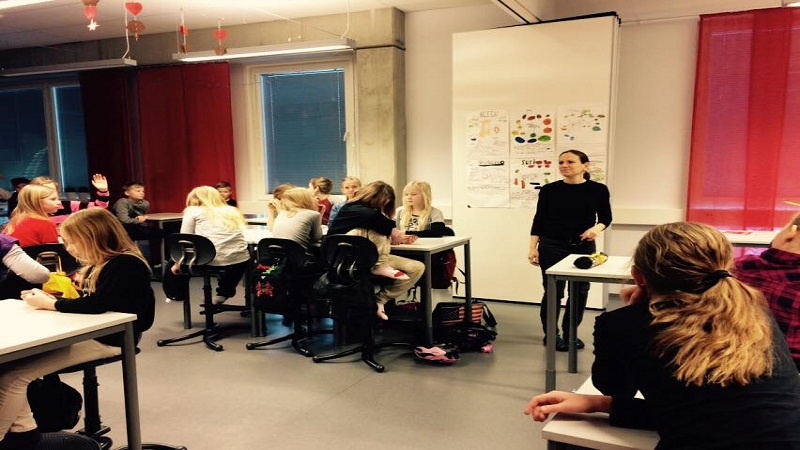A Study Guide is an instrument to obtain better results in learning. Therefore, they are structured from a series of questions about the content that is intended to be learned. It also allows you to organize the content and self-assess the degree of understanding reached during the study.
How to make a Study Guide

The Study Guides are instruments that guide the study to achieve better results in learning. In general, they are structured based on a series of questions about the content that you are trying to learn. It is the student himself who must prepare their study guides to facilitate control and check their level of learning of the subject, which allows the student to organize and make a self-assessment of the degree of understanding that has come to study.
Functions of the Study Guide
The study guides then fulfill several functions during the preparation of the questions that comprise it:
- Discriminates the essence of the subject.
- To understand what is read
- Reaffirm what is learned.
- Compare, compare and connect the important points.
Generalize learning by applying it in different ways and situations when formulating and answering our own questions.
Once you have prepared them, you can review the topics that interest you at any time based on their fundamental aspects, prepare the exams better, which serve as the basis for conducting the study, self-assess the times you want based on the questions included.
The Questions constitute a Study Guide should be written in such a way that your response allows you to recognize or remember information, express the same content in different ways, interpret the meaning of some type of information, compare and relate events.
Steps to develop a Study Guide

- Read the topic or the entire unit.
- Determine all your key ideas.
- Prepare several questions for each key idea.
- Review the topic of the study guide
Preparing study guides means additional effort that requires an analysis of the material to be learned. However, you will be rewarded with this effort by making it easier for you to prepare for exams and improve your performance at school.
STUDY GUIDES FOR “KNOWLEDGE” OR THEORETICAL KNOWLEDGE.
The questions that incorporate this type of guide should be formulated in the way that the answer allows it:
- Remember, identify or recognize each key idea.
- Express it in a different way and interpret its meaning.
- Compare or link to another and determine their examples.
The questions on which the questions are based are: what, who, when, where, what, what, what and how in some cases.
HOW TO DEVELOP A THEORETICAL GUIDE OF KNOWLEDGE?

- Read the topic or the entire unit. This will allow you to have a global vision of the subject.
- Identify key ideas. A key idea refers to the main point of a text, a paragraph or a section.
- Define and describe a phenomenon. What is and how is the event or problem treated?
- Explain how it goes. Indicate what is the cause and the effect
- Compare and contrast ideas, objects or events.
Hierarchy Explain what happened before and what later or what is more important in terms of events, events or concepts.
Prepare questions for each key idea. Questions what, who, when, where, what, what, what, what else, what practical questions, what questions to answer, what to comply with the points indicated in the previous one.
GUIDES TO STUDY “KNOW-HOW” OR PRACTICAL KNOWLEDGE.
The questions that incorporate this type of guide should be formulated in the way that the answer allows it:
Review and execute the method or technique studied, and compare them with others.
Distinguish their restrictions, moments, circumstances of application to: solve a problem, perform a practice, analyze a material, develop a new product, evaluate the quality of a material or an event.
HOW TO DEVELOP A GUIDE OF PRACTICAL KNOWLEDGE?
- Read the topic or the whole unit.
- Identify key ideas. Key ideas about practical knowledge are identified when:
- They define and describe a method or technique to solve problems, produce something or any activity. Explain what steps should be followed, in what order and how.
- Compare and contrast the different methods and techniques to solve a problem or execute an activity.
- Indicate the different times and circumstances in which the method is appropriate, as well as its restrictions.
Prepare questions for each key idea. From the questions, why, why, what is before, what, how, when, what and how is convenient, ask several questions, what answers, what to do with the points indicated in the previous section.
How to create a perfect study guide?

The first thing you must remember is that you are no longer in high school, so it will not do any good to study at the last moment or attend class so that the teacher dictates the syllabus. Although in your college years you may meet some teacher who teaches his lessons in a masterly manner, the most common is that classes are the right place to answer questions, open debates or expand topics .
For this system to work, it is important that you read the syllabus before going to class. Surely the teacher will say what is going to be treated in the next lesson, so you can read the contents at home and begin to develop the study guide.
Take note of everything you think is relevant, and leave a space on the right margin to complete the information with the concepts seen in class.
Finally, a study guide is a tool that allows the student to make a more autonomous and independent learning about the topics seen in class. This document, essential for all university students, will allow you to arrive at the time of the exam without hassles or haste, as it will help you to develop an effective study plan throughout the course. Have you still not learned how to create a study guide? Keep reading and overcome the race with good grades and saving time and effort. If you still do not have a study guide, surely you are one of those who feel at home or in the library with an endless amount of material (textbooks, handwritten notes, photocopies of the teacher, jobs, etc.). finished with the study guides, since you will only need these documents to pass the subject with honors.





